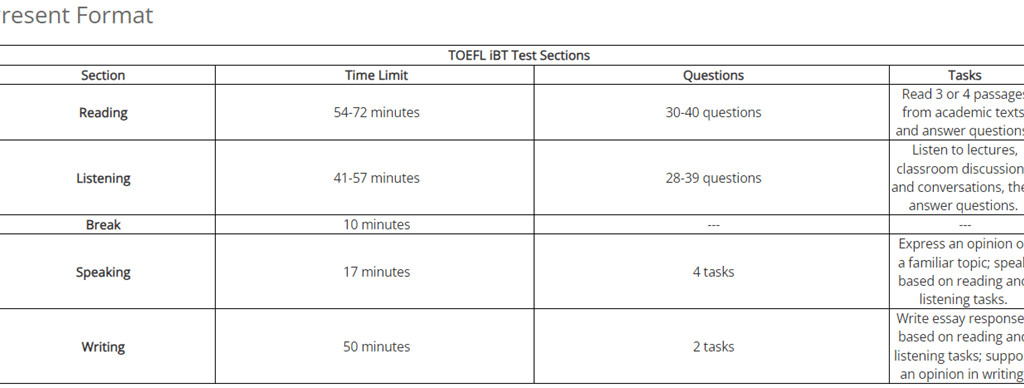Global Learning and its Importance

Global learning refers to the process of acquiring knowledge and understanding of global issues, cultures, and perspectives.
It involves developing a global mindset and the ability to think critically and empathetically about global challenges.
In today’s interconnected world, global learning has become increasingly important as it prepares students to navigate the complexities of a globalized society.
Global learning equips students with the skills and knowledge needed to engage with diverse cultures, solve complex problems, and contribute to positive social change.
It fosters a sense of global citizenship and encourages students to become active participants in addressing global issues such as climate change, poverty, and inequality.
By exposing students to different perspectives and experiences, global learning promotes empathy, tolerance, and respect for cultural diversity.
Top Universities in the World for Global Learning

1. Harvard University:
Harvard offers a wide range of global learning programs, including study abroad opportunities, research collaborations, and internships.
The university’s Center for International Development also provides resources and support for students interested in pursuing careers in international development.
2. Stanford University:
Stanford’s Bing Overseas Studies Program allows students to study abroad at one of the university’s overseas campuses or partner institutions. The program offers a diverse range of courses and cultural immersion experiences to enhance students’ understanding of global issues.
3. University of Oxford:
Oxford’s Global Opportunities Program provides students with opportunities to study abroad, participate in research projects, and engage in international internships. The university also offers a variety of language programs and cultural exchange initiatives to promote global learning.
How to Choose the Right University for Global Learning
When choosing a university for global learning, there are several factors to consider:
1. Reputation:
Look for universities with a strong reputation for global learning programs. Research their rankings, partnerships with international institutions, and alumni success stories.
2. Curriculum:
Review the university’s curriculum to ensure it offers a wide range of courses and programs related to global learning. Look for opportunities to study abroad, engage in research projects, and participate in internships.
3. Support Services:
Consider the support services available to international students, such as language support, cultural integration programs, and career counseling. These services can greatly enhance the global learning experience.
4. Alumni Network:
Research the university’s alumni network and their involvement in global initiatives. A strong alumni network can provide valuable connections and opportunities for global learning.
To choose the right university for global learning, it is important to thoroughly research and compare different institutions. Visit university websites, attend information sessions, and reach out to current students or alumni for their insights and experiences.
Benefits of Global Learning for Students
Global learning offers numerous benefits for students, both personally and academically.
Some of the key benefits include:
1. Cultural Awareness:
Global learning exposes students to different cultures, traditions, and perspectives. This fosters a greater understanding and appreciation of cultural diversity, promoting tolerance and empathy.
2. Language Skills:
Studying abroad or engaging in international programs can greatly enhance language skills. Immersion in a foreign language environment allows students to develop fluency and proficiency in a second language.
3. Critical Thinking Skills:
Global learning encourages students to think critically and analytically about global issues. It challenges them to consider multiple perspectives and develop well-rounded arguments.
4. Problem-Solving Skills:
Global learning equips students with the skills needed to solve complex problems in a global context. It encourages creative thinking, adaptability, and resilience.
Challenges Faced by Students in Global Learning
While global learning offers numerous benefits, it also presents challenges for students. Some common challenges include:
1. Language Barrier:
Language barriers can make it difficult for students to fully engage in the learning experience. However, with dedication and practice, language skills can be developed over time.
2. Cultural Adjustment:
Adjusting to a new culture can be challenging, especially for students who are not accustomed to being away from home. It is important to be open-minded, patient, and willing to learn from the local culture.
3. Homesickness:
Being away from family and friends can lead to feelings of homesickness. It is important for students to stay connected with loved ones and seek support from fellow students or university support services.
Strategies for overcoming these challenges include:
1. Language Practice:
Take advantage of language classes, language exchange programs, and language immersion opportunities to improve language skills.
2. Cultural Immersion:
Engage in cultural activities, join student clubs or organizations, and make an effort to interact with local students to better understand the host culture.
3. Support Systems:
Seek support from university support services, such as counseling services or international student offices. Connect with fellow students who are also experiencing similar challenges.
Global Learning Programs and Opportunities for Students
There are various types of global learning programs and opportunities available for students:
1. Study Abroad Programs:
These programs allow students to spend a semester or year studying at a foreign university. They provide an immersive cultural and academic experience.
2. Internship Programs:
Internship programs abroad offer students the opportunity to gain practical work experience in a global setting. This allows students to apply their knowledge and skills in a real-world context.
3. Research Collaborations:
Many universities offer research collaborations with international institutions. These collaborations allow students to work on research projects with experts in their field and gain valuable insights into global issues.
Examples of global learning opportunities for students include:
1. Fulbright Program: The Fulbright Program offers scholarships for students, scholars, and professionals to study, teach, or conduct research abroad. It promotes mutual understanding between the United States and other countries.
2. Erasmus+ Program: The Erasmus+ Program is an initiative of the European Union that provides funding for students to study, train, or volunteer abroad. It aims to enhance skills and employability, as well as promote intercultural understanding.
3. Peace Corps: The Peace Corps is a volunteer program that sends American volunteers abroad to work on projects related to education, health, agriculture, and community development. It offers a unique opportunity for cultural exchange and service.
How Global Learning Enhances Career Prospects
Global learning can greatly enhance a student’s resume and job prospects. Employers value candidates with global experience as it demonstrates adaptability, cultural awareness, and a global mindset. Some careers that value global learning experience include:
1. International Development: Global learning provides a strong foundation for careers in international development. It equips students with the skills and knowledge needed to address global challenges and work towards sustainable development.
2. Diplomacy and International Relations: Global learning enhances understanding of international relations and diplomacy. It prepares students for careers in diplomacy, foreign service, and international organizations.
3. Business and Entrepreneurship: Global learning provides students with a global perspective on business and entrepreneurship. It equips them with the skills needed to navigate global markets and work in multicultural teams.
The Role of Technology in Global Learning
Technology has revolutionized the landscape of global learning, making it more accessible and interactive. Online platforms, virtual classrooms, and digital resources have made it possible for students to engage in global learning from anywhere in the world. Some examples of technology-based global learning programs include:
1. Massive Open Online Courses (MOOCs): MOOCs offer free or low-cost online courses on a wide range of subjects. They allow students to learn from top universities and experts around the world.
2. Virtual Exchange Programs: Virtual exchange programs use video conferencing and online platforms to connect students from different countries for collaborative projects and discussions. This allows for cross-cultural learning and dialogue.
3. Online Language Learning: Online language learning platforms provide interactive language courses that can be accessed from anywhere. They offer a flexible and convenient way to improve language skills.
Global Learning and Cultural Exchange
Cultural exchange is an integral part of global learning. It allows students to immerse themselves in different cultures, gain a deeper understanding of global issues, and develop cross-cultural communication skills.
Some examples of cultural exchange programs for students include:
1. Student Exchange Programs: Student exchange programs allow students to study at a foreign university for a semester or year. This provides an opportunity to experience a different culture firsthand and build lasting connections.
2. Volunteer Programs: Volunteer programs abroad offer students the opportunity to contribute to community development projects while immersing themselves in the local culture. This promotes cultural exchange and understanding.
3. Language Immersion Programs: Language immersion programs provide students with the opportunity to live with a host family and attend language classes in a foreign country. This allows for cultural immersion and accelerated language learning.
Embracing Global Learning for a Brighter Future
Global learning is essential in today’s interconnected world. It prepares students to navigate the complexities of a globalized society, fosters cultural awareness and empathy, and enhances critical thinking and problem-solving skills.
By choosing the right university, overcoming challenges, and taking advantage of global learning opportunities, students can gain valuable skills and experiences that will benefit them personally and professionally.
Embracing global learning is not only beneficial for individual students but also for society as a whole, as it promotes understanding, tolerance, and positive social change.






















